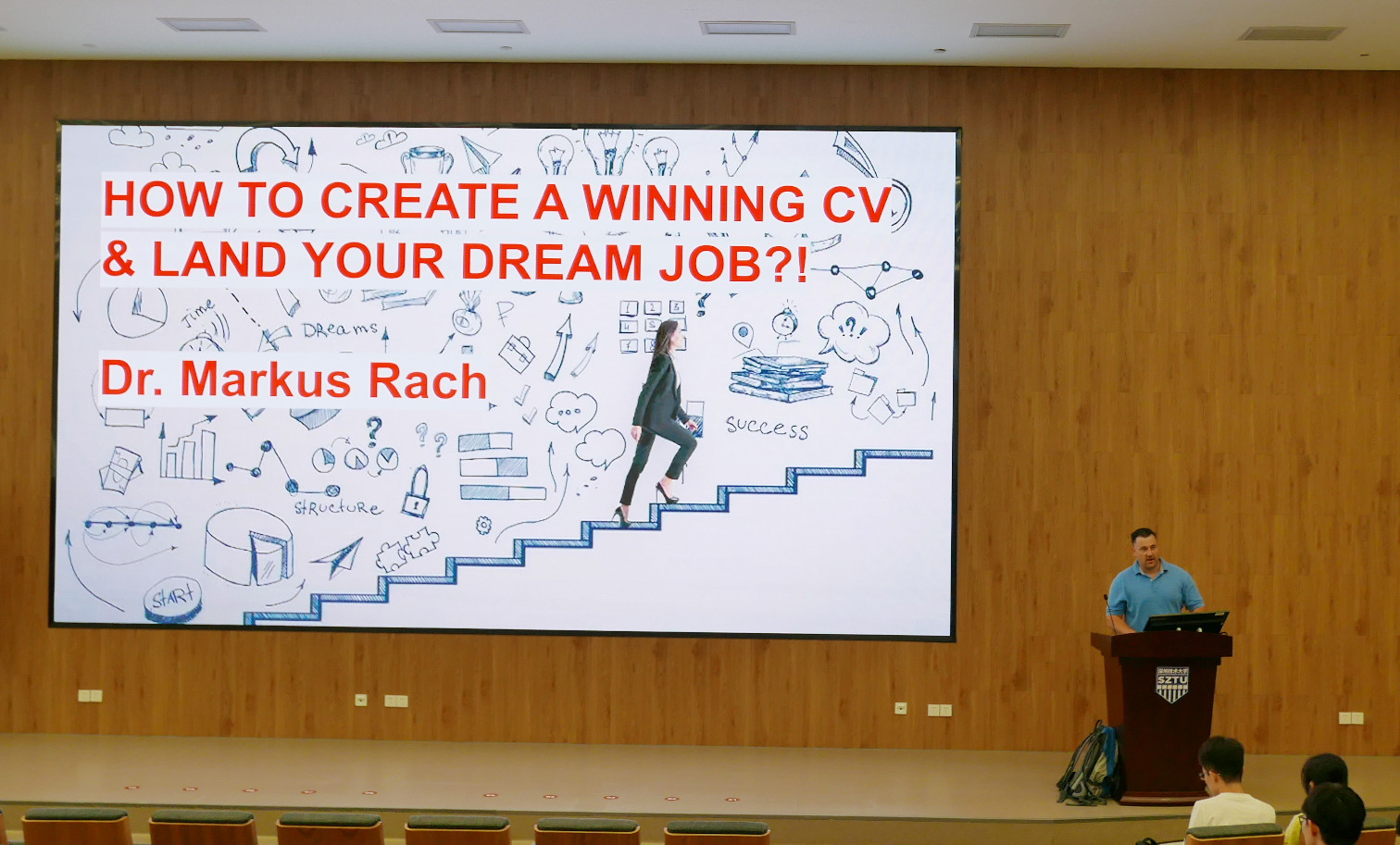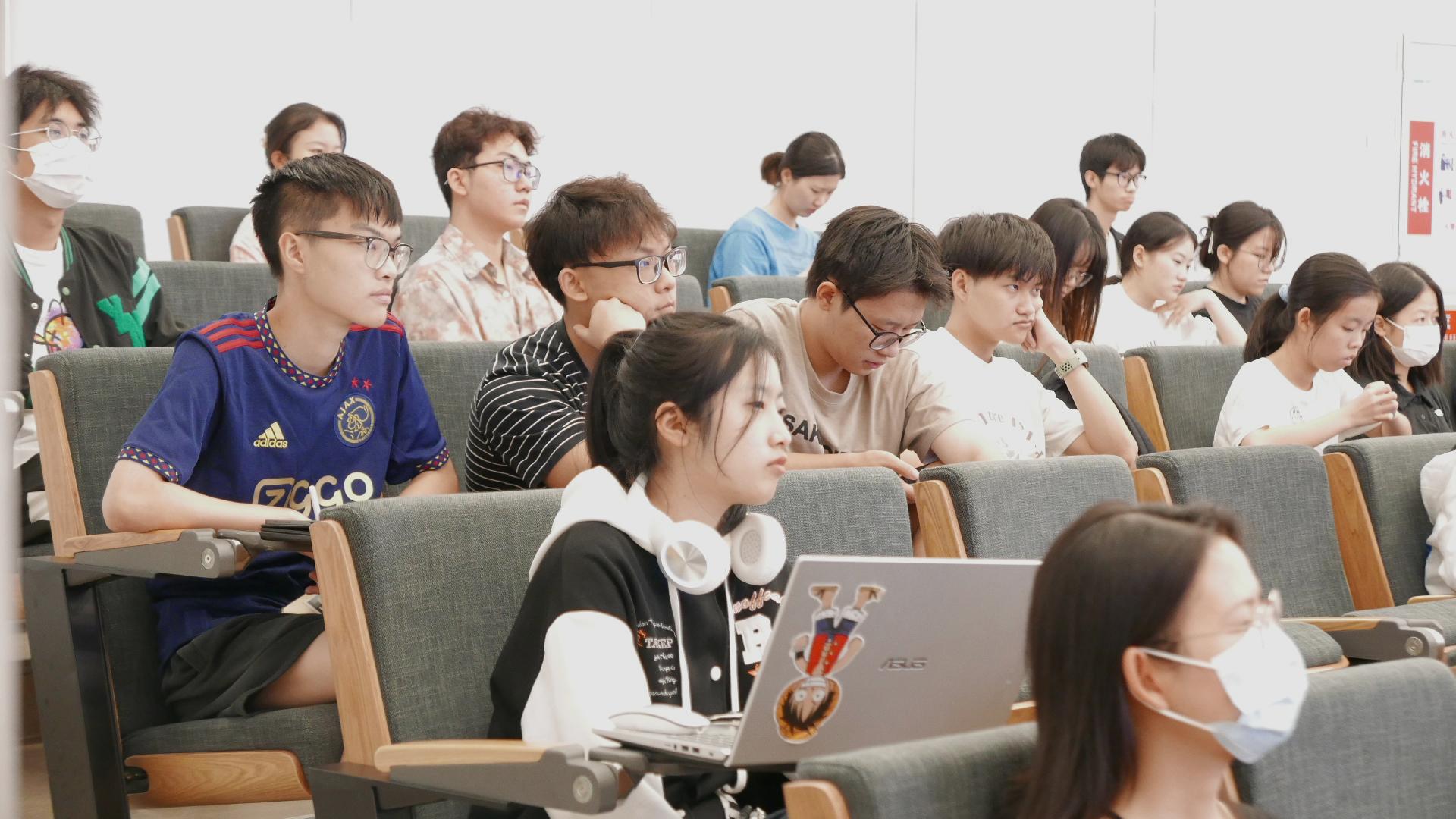Associate professor, Dr. Markus Rach, gave a voluntary seminar to interested Business School students on how to create a winning CV, differentiate from the crowd, build a personal brand and thus increase the odds of landing the ultimate dream job.
The seminar built upon the experience of Dr. Markus Rach as a marketing executive employing and managing people on every continent, as well as his voluntary engagement as an academic mentor / coach for the Swiss Federal Employment Agency. In this capacity, Dr. Markus Rach coaches and consults academics and senior managers during job transition periods.
The seminar started by asking a very simple, yet very important question: what is your dream job? Most students had already a dream job in mind. Some examples included to be a CEO, a social media manager in big tech, investment banker and general manager. Thus, a wide breadth of interests. Why does this even matter for students at the very beginning of their career? It matters a great deal. On average, every advertised job receives 250 applications. Thus, a CV and the person behind it, must convince an agency, HR or the hiring manager within the split of a few seconds, that they are the best possible candidate for the job. Whilst nobody will hire a person within seconds, these seconds determine whether a CV results in a rejection or in an interview invite. Thus, every line in the CV counts. Being clear about one’s dream job, allows to build a resume to beat the global odds and thus open the door to making a dream come reality. As such, the first internship should be chosen carefully, as it will act as a further door opener and potentially mark the first line of work experience post-graduation.
Following, students learned how to draw important personal branding lessons from a bottle of coca cola. Unless selling a product or a service, applying for a job becomes a self-marketing task. The CV holder becomes the product to be marketed. Thus, some basic lessons learned were drawn:
First, there is no one size fits all. Like a coke, that comes in various bottle sizes, shapes, flavors, and price points to serve a heterogenous market, a CV must be tailored to each job and potential employer. The CV to job fit matters to quickly communicate the strongpoints that matter to the respective employer.
Second, a CV is not a piece of art. It as a working document, a decoded piece of personal branding with very time sensitive nature to it. On average, CV screening happens between 3 to 5 seconds. Thus, a CV must be easy to read, mobile friendly and well structured. Students learned a basic CV structure and how action verbs help to shorten text and make the CV stand out as punchy and vibrant.
Third, a CV must reduce contact hurdles where possible. Like a coke, that sells through broad distribution, thus convivence based availability through supermarkets, restaurants, kiosk and vending machines, thus lowering the purchasing barriers for consumers, a CV should do the same. Particularly in China, with WeChat being the predominant communication tool, why not include the WeChat-QR-Code on top of the CV for easy contact and potentially quick interview scheduling?!
Lastly, a picture speaks more than a thousand words. Profile pictures matter. They communicate the CV holder’s personal brand like nothing else on the document. An outstanding picture is an eye-catcher and should match the person’s professional aspirations.
To end the seminar, some tips and insights were shared on how to use social media’s advertising engine to discover contacts with organizations and find jobs, ranging from internships to the final state of being a CEO.
Dr. Markus Rach was very pleased with the seminar as well as with the many questions that followed it. According to him, this showed how ambitious and career driven SZTU Business School students are. Further, it also revealed how wide-spread interests are, hinting towards the amazing alumni network SZTU Business School students will enjoy in the very future.



Text: Markus Rach
Picture: Tan Yujia